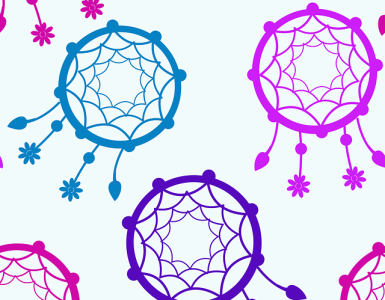In our modern world, we are constantly bombarded with choices. From the 50 types of toothpaste at the supermarket to the endless stream of content on Netflix, the abundance of options seems like a dream come true. However, psychologists have discovered a counterintuitive phenomenon: too many choices can lead to anxiety, dissatisfaction, and paralysis in decision-making. This concept, known as the “paradox of choice,” challenges our assumptions about freedom and happiness. It suggests that while some choice is undoubtedly better than none, there’s a point where additional options become overwhelming and detrimental to our well-being. Understanding this paradox can help us navigate our choice-rich environment and find greater satisfaction in our decisions.
The paradox of choice, first popularized by psychologist Barry Schwartz in his 2004 book of the same name, has profound implications for how we live our lives and structure our societies. At its core, this concept argues that an overabundance of options can actually make us less happy and less satisfied with our eventual decisions.
One of the key reasons for this paradox is the increased cognitive load that comes with more choices. When faced with numerous options, our brains must work harder to evaluate each possibility, comparing and contrasting features, imagining potential outcomes, and trying to predict which choice will bring the most satisfaction. This mental effort can be exhausting, leading to decision fatigue and a tendency to either avoid making a choice altogether or to make hasty, ill-considered decisions.
Moreover, an abundance of choices raises our expectations. When we have many options, we naturally expect to find the “perfect” choice among them. This expectation often leads to disappointment, as no option can live up to the idealized version we’ve created in our minds. We may end up less satisfied with our choice than if we had fewer options to begin with, a phenomenon known as “buyer’s remorse.”
The paradox of choice also introduces the fear of missed opportunities. With every choice we make, we’re simultaneously choosing not to pursue all the other options. This can lead to a nagging sense of doubt and regret, wondering if we made the right decision or if another option might have been better. In psychology, this is referred to as “opportunity cost,” and it can significantly diminish our enjoyment of the choice we did make.
Research has shown that this paradox manifests in various aspects of our lives. In one famous study, researchers set up a tasting booth with different varieties of jam. When 24 varieties were offered, only 3% of people made a purchase. However, when the selection was limited to 6 varieties, 30% of people bought jam. This ten-fold increase in sales with fewer options challenges the common business assumption that more choice is always better.
The paradox of choice doesn’t just affect consumer behavior; it has implications for more significant life decisions as well. For instance, studies have shown that people in countries with more career options report higher levels of job dissatisfaction. Similarly, the abundance of potential partners available through online dating can lead to less commitment and satisfaction in relationships, as people constantly wonder if they could find someone “better” with just a few more swipes.
So how can we navigate this paradox and find greater satisfaction in our choices? One strategy is to become what Schwartz calls a “satisficer” rather than a “maximizer.” Satisficers make decisions once they’ve found an option that meets their criteria, rather than exhaustively searching for the absolute best choice. This approach can lead to greater contentment and less second-guessing.
Another helpful approach is to limit our options deliberately. This could mean unsubscribing from marketing emails, limiting our social media use, or consciously deciding to shop at smaller stores with fewer choices. By reducing the number of options we face, we can make decisions more easily and feel more satisfied with our choices.
It’s also important to practice gratitude for the choices we do make. By focusing on the positive aspects of our decisions rather than dwelling on what we might have missed, we can increase our overall satisfaction and well-being.
On a societal level, understanding the paradox of choice can inform better policy-making and business practices. For example, retirement savings plans with fewer, well-curated investment options tend to have higher participation rates than those offering a dizzying array of choices. Similarly, restaurants with smaller, focused menus often receive higher customer satisfaction ratings than those with extensive, multi-page menus.
However, it’s crucial to note that the solution isn’t to eliminate choice entirely. Choice is still a fundamental aspect of human freedom and autonomy. The key is finding the right balance – enough options to provide a sense of control and personalization, but not so many that we become overwhelmed or paralyzed.
As we continue to navigate our increasingly complex world, understanding the paradox of choice can help us make better decisions, both individually and collectively. By recognizing that more isn’t always better when it comes to options, we can structure our lives and our societies in ways that promote genuine satisfaction and well-being, rather than endless, exhausting quests for the “perfect” choice.

























Add comment